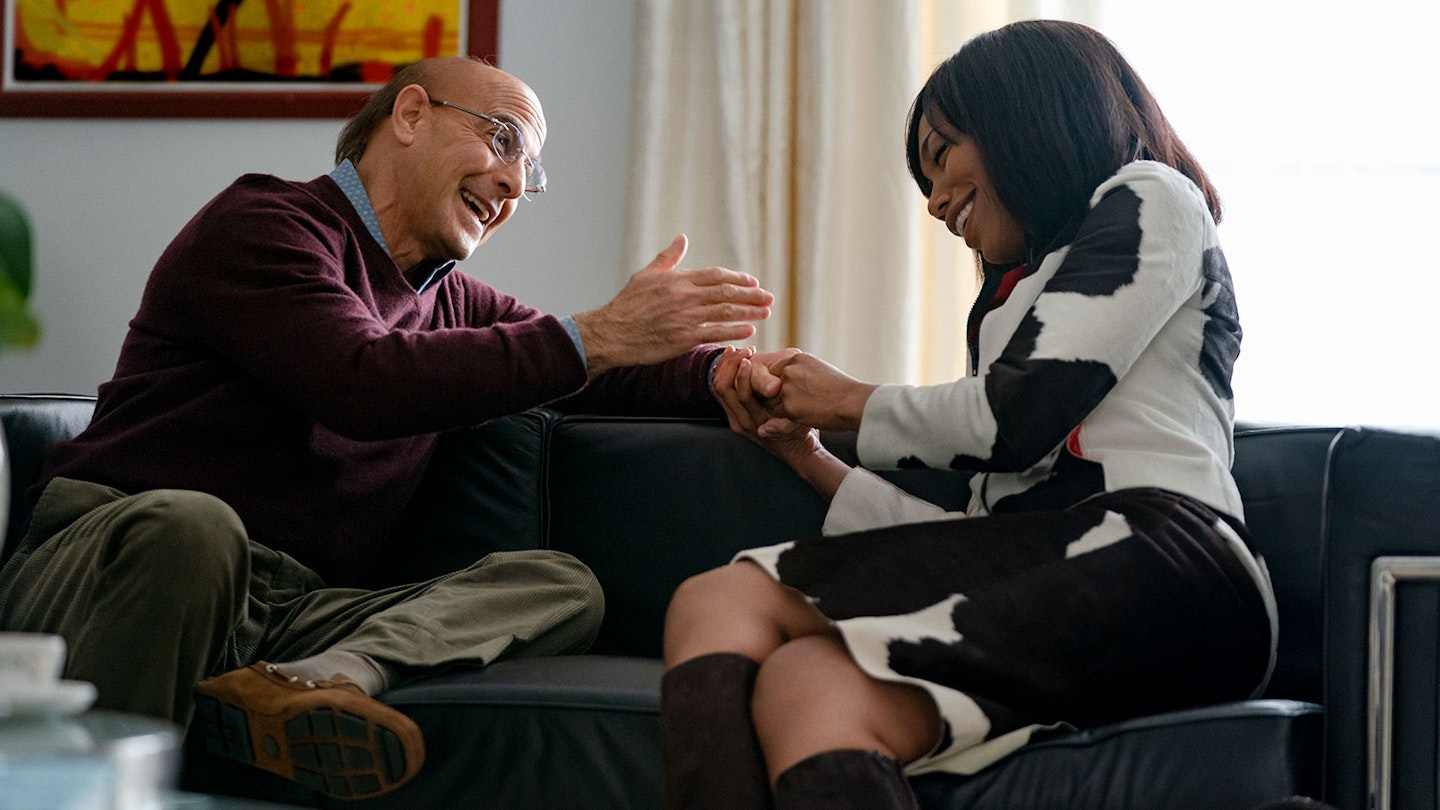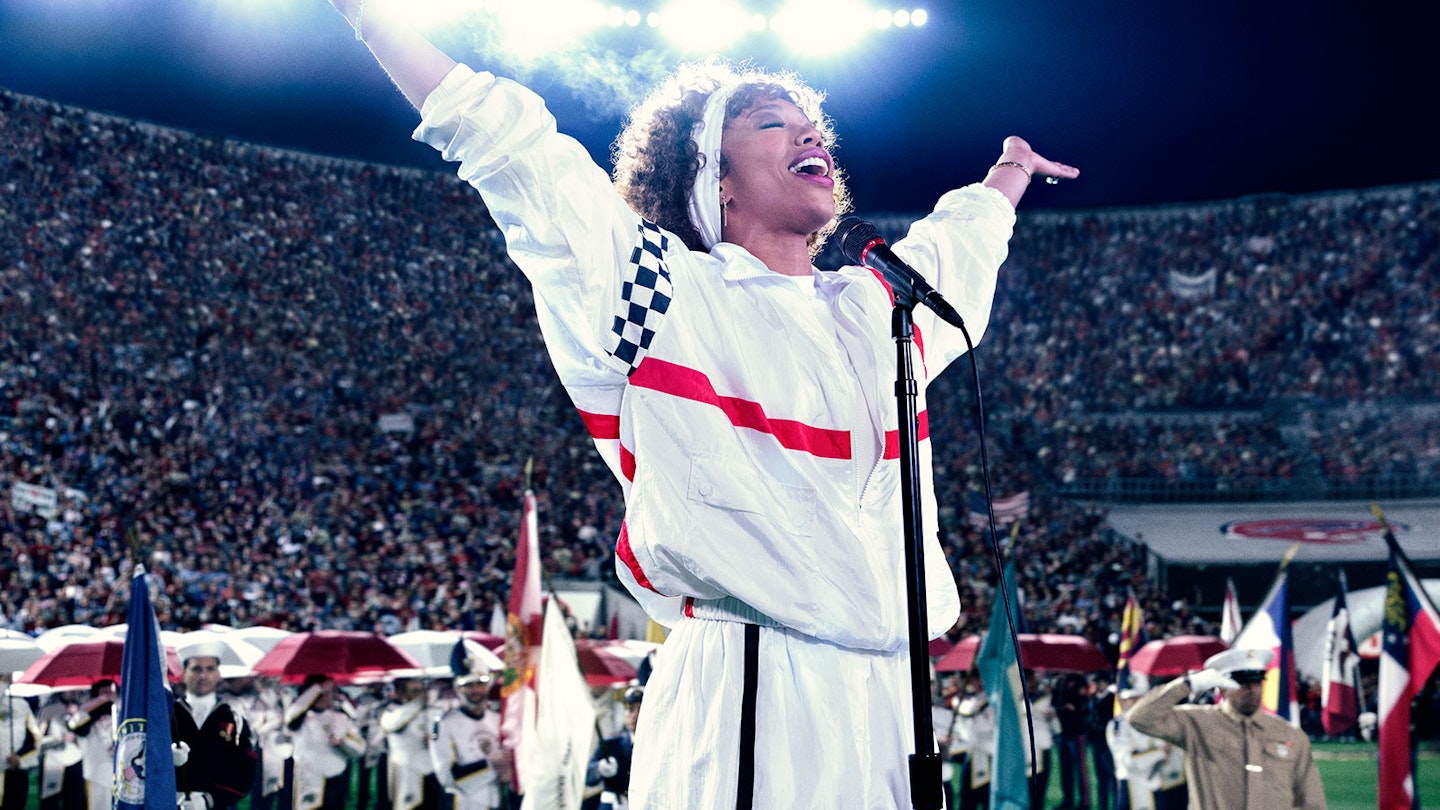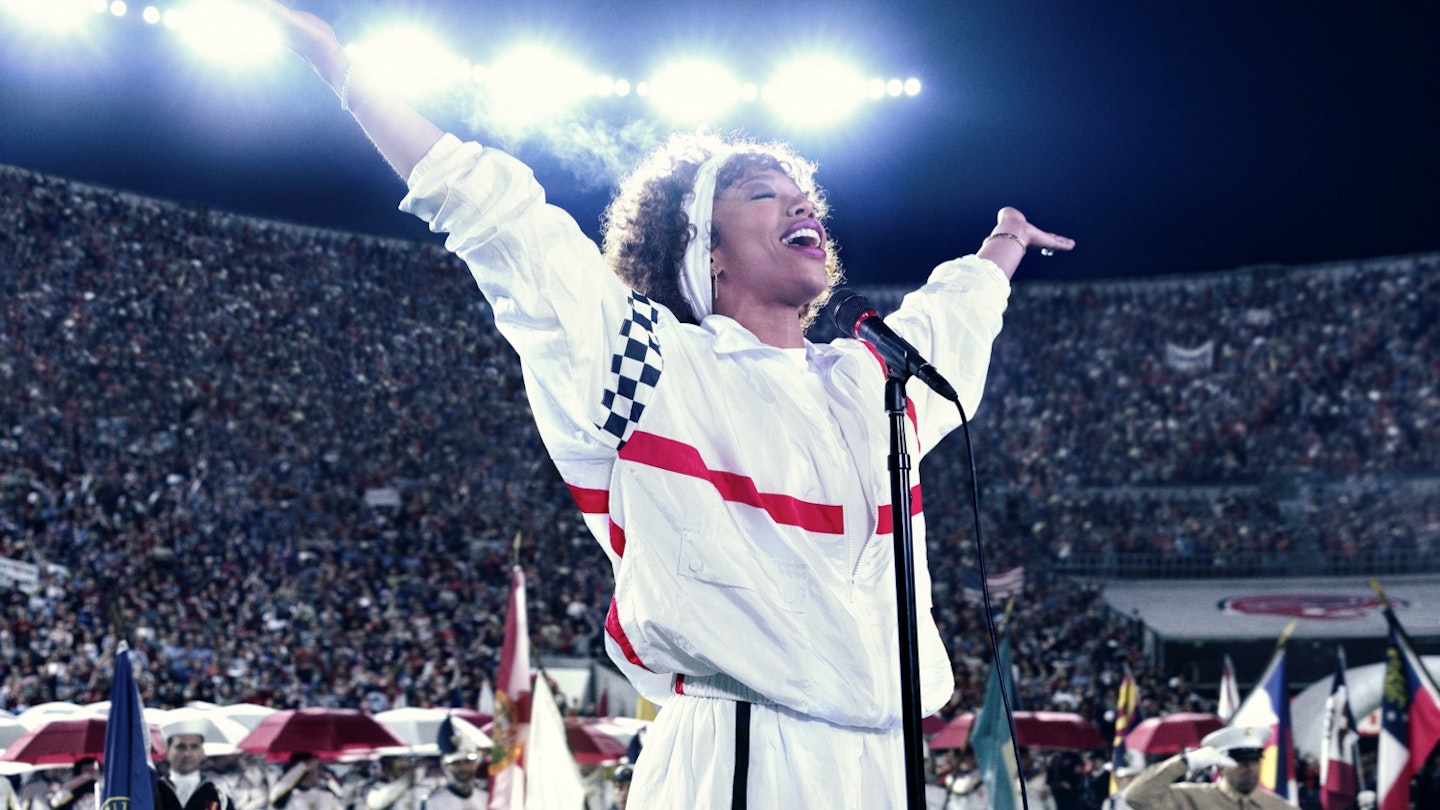Hollywood can’t seem to escape the formulaic music biopic: the recounting of a star’s life in the most conventional way possible, cramming every trial and tribulation into a single sitting. For every film that tries to break the mould (Rocketman), there's at least one more that follows the formula to the letter (Bohemian Rhapsody). The latest entry, Kasi Lemmons’ I Wanna Dance With Somebody, largely follows this blueprint to the letter.

To the film’s credit, Lemmons’s solid encapsulation of Houston's life from strict church upbringing to superstardom portrays the singer as humanely as possible. Her early struggles to be herself, her relationships — particularly with friend and assistant Robyn Crawford (Nafessa Williams), mother Cissy (Tamara Tunie) and producer Clive Davis (Stanley Tucci) — and her commodification by the music industry as “America’s Princess” add fuel to the fire. It's a promising start.
It's Ackie's impactful performance that elevates this film.
As the legendary star, Naomi Ackie delivers a commanding performance, channelling every iota of Houston's mannerisms and magnetism; it's a career high point for the Star Wars actor. When the film excels — most notably Whitney’s performance of the famous ‘impossible medley’ at the American Music Awards, where she sang 'I Loves You, Porgy', 'And I Am Telling You I’m Not Going' and 'I Have Nothing' — Ackie’s uncanny embodiment reminds you of Houston's soul-stirring power, and why she was rightly named, by musician Andy Gill, as “the greatest voice of her generation”.
There are faithful recreations, too, of Whitney’s iconic music videos, and her famous performance at the 1991 Super Bowl. But despite its 146-minute runtime, the film struggles to cram everything in. The script by Anthony McCarten (who also wrote Bohemian Rhapsody) rarely rises above surface-level analogies.
In capturing Whitney’s entire life, the Wikipedia-style exploration is not prepared to dive deeply enough into the emotional complexities and nuances of those key moments (such as the scrutiny, at the time, of Whitney’s music not being ‘Black enough’). The film's tendency to rush off to the next moment creates a tonal whiplash between scenes. It's Ackie's impactful performance that elevates this film; her epic, textured performance is what you'll remember after the lights go down.

